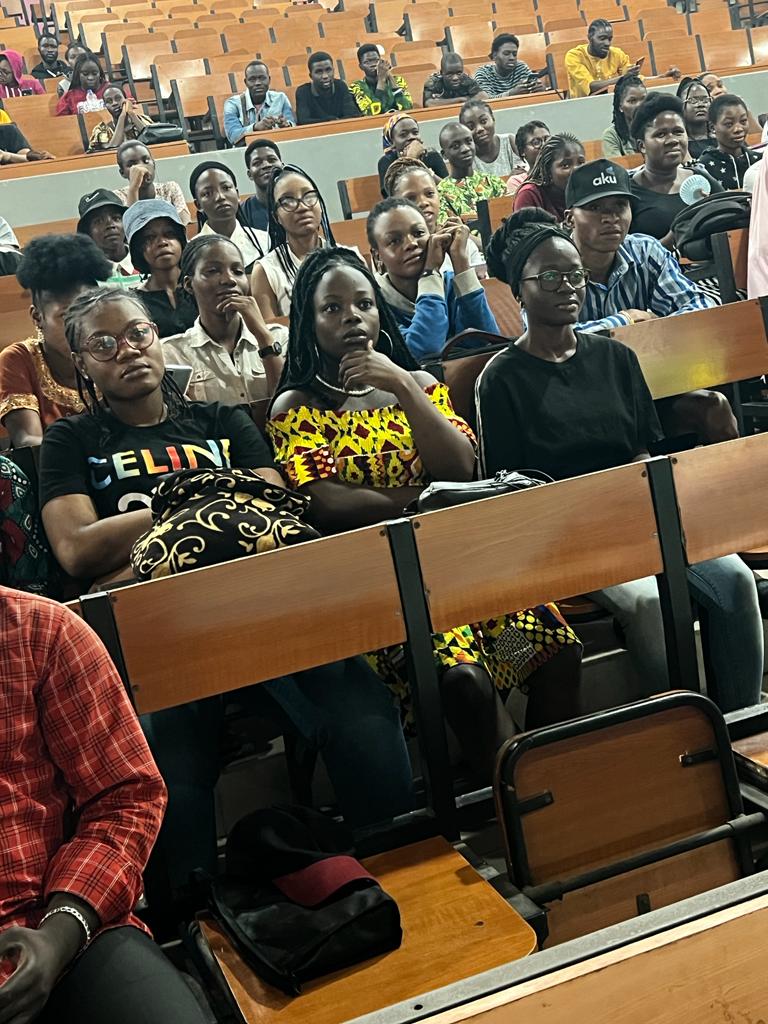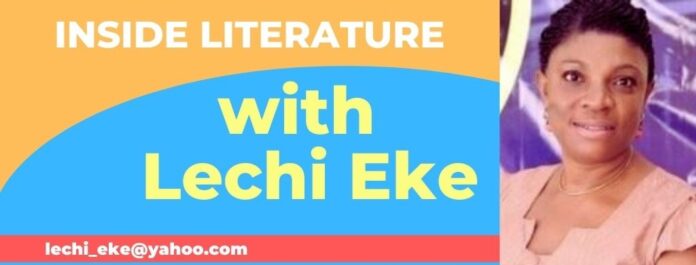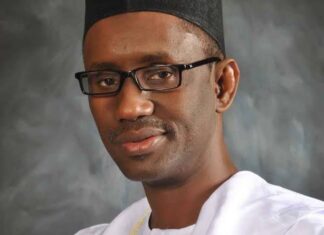Prof. Hope Eghaghe speaking on playwriting, during the 8th edition of Reading Café, told the literary audience that writing a play is never complete until the play is set on stage.
- Prof. Hope Eghaghe @ Reading Café 8th Edition, Arts Theatre, UNILAG
By Ada George
The annual literary event, Reading Café, opened at the Arts Theatre, University of Lagos, on Friday, 17th February 2023 at 10am prompt. The one-day event witnessed convergence of multiplied hundreds of fledgling writers, authors, students of literary studies, and book lovers in general. But speaking to the convener of the annual literary event, Mrs. Lechi Eke, expressed disappointment at what she termed a low-turn-out at the 2023 edition of the programme. She cited fuel scarcity, naira scarcity, and insecurity in the country following the fast-approaching presidential general election on 25th February, 2023, as culprits.
Prof. Hope Eghaghe speaking on playwriting, during the 8th edition of Reading Café, told the literary audience that writing a play is never complete until the play is set on stage. He went on to share different life experiences that led to writing some of his successful plays. One of them being how he entered an exam hall and noticed that a very beautiful well-decked lady was completely jittery; he left, but instructed examiners to keep an eye on her. She was later caught with some illegal materials and was sent off. This inspired him to write a play.
Quoting from Deuteronomy 32:29, Eghaghe opined that he feels like a god when writing, because he can kill and make alive, his characters. Maybe, this is why writers are also called creatives or creators.

The annual literary programme, Reading Café, has motivated many students, fledgling writers and book lovers to take a more decisive stance towards literary-writing.
This year’s Reading Café attracted such big names in the pen industry as Prof. Hope Eghaghe, a playwright, a don in the Department of English, University of Lagos, and an ex-commissioner in Delta state, and Dr Mrs. Lizzy Ikem, the immediate past Provost of Nigeria Institute of Journalism (NIJ), a biographer and author of a book on Creative Writing. Also, gracing the high table were Dr Lola Akande, an award-winning novelist, as well as poetry lecturer extraordinaire, Dr Charles Akwen, a lecturer in the Department of English, University of Lagos. He made this reporter’s blood bubble with his presentation of writing and judging poetry.
READ ALSO:
NIN-SIM linkage hiccup costs telcos 12m internet subscribers
Adding glam and great value to the literary event was, Mrs Gbemi Shasore, CEO of Quramo Publishing company whose outfit runs an annual writing competition for unpublished authors with a prize money of N1, 000, 000 (One Million naira). In her speech, Mrs Shasore encouraged students, fledgling writers and book lovers gathered in the Arts Theatre, University of Lagos, to send in their stories declaring that the number of attendees at the literary event said to her that there’s hope for Nigeria’s future.
Poet and poetry lecturer, Dr Akwen Charles, had the literate audience sitting on the edge of their seats as he delved into the six important elements to look out for in poetry. These include sound/tone, imagery, and diction. The poet, he said, should appeal to all the six senses. Akwen put it to his audience that the writer can create moods and imaginations by their choice of words. Using the word ‘red’, the Tiv poet said it could stand for danger, love, death, or life, depending on the context it appears in. Words, he said, have life, and are expressive.
Encouraging the audience to engage in the genre of writing called biography, Dr Lizzy Ikem, talked about chronicling the life and times of great people who live in our time, or before us. She enumerated different types of biographies, including historical biography and popular biography, saying that intending biographers could use different approaches in writing. These approaches should include interview of the principal officer, speaking to individuals who know them, or who work with them; also, digging around places where they were born, raised, and live.
In writing a novel, Dr Lola Akande said; get a subject that people cannot ignore. The award-winning novelist told her audience that the writer must pin down his/her intention: what the writer wants the reader to do with the subject of the book. She said the writer must determine his or her audience; create a problem and a character to solve it. Akande was of the opinion that a good writer must be in conflict with himself and kill their ego, but at the end, she said everything must cohere; be an organic whole, making sense. Finally, it must entertain.
Literature scholar and convener of Reading Café, Mrs Lechi Eke, who earlier gave the opening remark after a handful of spoken word artists had entertained the literary audience and won themselves some cash prizes, spoke on creative writing. She observed that Reading Café is heading towards being a master class on creative-writing.
Eke encouraged the audiences to write regularly, but to make sure they put down ideas the moment they drop in their heads. She said that ideas once lost may never be regained, especially in the exact pristine words they came with.
The literary editor and publisher, naming people like Jude Idada and Akachi Adimora-Ezeigbo, explained how writing has always been a lucrative venture, encouraging her audience to embrace it.
Naming interest, inspiration, and spontaneity as the names of the game, Eke recalled some of the great stories she had written powered by them. She ended her speech by reading two of her recent poems.
It should be recalled that the annual literary programme started in 2015, but could not hold in 2022 due to the ASUU industrial action that disrupted the academic calendar. The 8th edition of the annual Reading Café came to an end with writing competition winners carting away cash prizes from namely: The Niche Poetry Prize, Wale Arikawe Prize for short story and other prizes.
The president of NASELS (National Association of English and Literary Studies), Unilag branch, Hope Nwani, in giving the vote of thanks and prayers, thanked Reading Café all-time sponsors: UBA, The Niche Online Newspaper, Mr Wale Arikawe, Peak Milk. Others were: West African Book Publishers (WABP), Beloxxi, MRS Oil (in the past), as well as new entrants, Pure Bliss and Department of English Class of 1992 which the convener is a member.
In all, Reading Café has come and gone, but the ripples splayed on.













